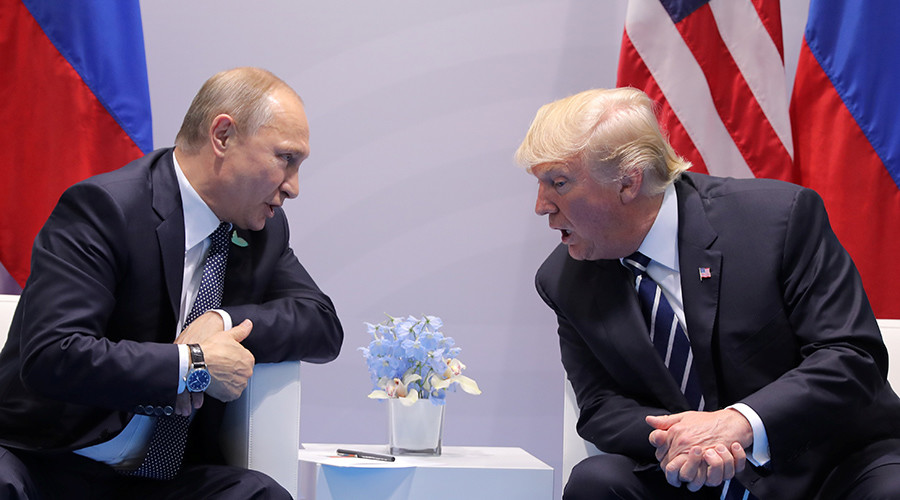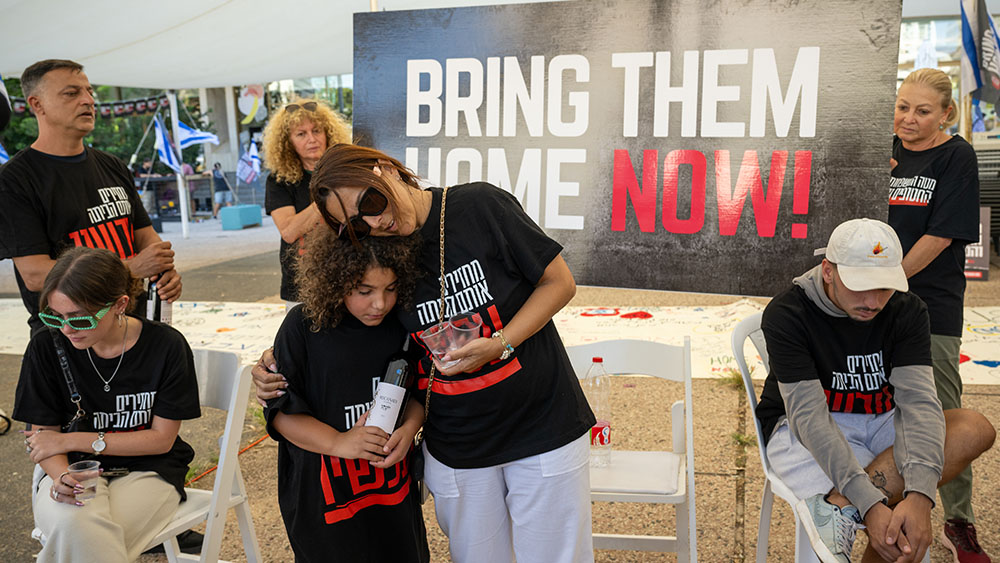
- President-elect Donald Trump announced plans for a meeting with Russian President Vladimir Putin, signaling a potential shift in U.S. foreign policy towards the Russia-Ukraine war.
- Trump criticized outgoing President Joe Biden's handling of the Ukraine conflict and vowed to broker a swift resolution, marking a departure from Biden's strategy of unconditional support for Ukraine.
- Trump's team is reportedly considering a conflict freeze along the current front lines, which could cede occupied Ukrainian territories to Russia, according to media reports.
- Ukrainian President Volodymyr Zelensky expressed cautious hope for Trump's role in ending the conflict, while Trump has previously dismissed Zelensky's appeals for Western support.
- The potential Trump-Putin meeting represents a potential turning point in U.S.-Russia relations, with significant implications for Ukraine's sovereignty and territorial integrity, as well as the role of NATO and U.S. global leadership.
U.S. President-elect Donald Trump announced Thursday, Jan. 9, that a meeting is being arranged between him and Russian President Vladimir Putin, signaling a potential shift in U.S. foreign policy as the Russia-Ukraine war approaches its third year.
Speaking at his Mar-a-Lago residence in Palm Beach, Florida, Trump revealed the plans during a gathering with Republican governors but provided no specific timeline for the talks.
"He wants to meet, and we are setting it up," Trump said, referring to Putin.
The president-elect, who takes office on Jan. 20, has repeatedly criticized outgoing President Joe Biden's handling of the Ukraine conflict, vowing to broker a swift resolution.
Trump's announcement comes amid growing speculation about his approach to ending the war, which has claimed tens of thousands of lives and displaced millions since Russia's full-scale invasion in February 2022.
The 47th POTUS' willingness to engage directly with Putin marks a stark departure from Biden's strategy, which has focused on unconditional military and financial support for Ukraine. While Trump has yet to outline a concrete peace plan, media reports suggest his team is considering a freeze to the conflict along the current front lines, a proposal that could effectively cede occupied Ukrainian territories to Russia.
Keith Kellogg, Trump's incoming Ukraine envoy, has expressed optimism about brokering a deal within 100 days of the inauguration.
"We need to get this war over with," Kellogg said, criticizing Biden for not speaking directly with Putin since 2022. However, the Kremlin has yet to confirm any formal request for a meeting. "It makes sense, of course, to wait until [Trump] takes office," Kremlin spokesman Dmitry Peskov told reporters on Thursday.
Ukrainian President Volodymyr Zelensky, who has repeatedly appealed to Western nations for increased aid, has expressed cautious hope that Trump could play a decisive role in ending the conflict. In a Nov. 29 interview with Sky News, Zelensky suggested that NATO security guarantees for Ukraine could help end the "hot phase" of the war, with diplomatic negotiations to follow for the return of occupied territories.
However, Trump has frequently dismissed Zelensky as the "greatest salesman on earth," mocking his appeals for Western support. The president-elect has also raised eyebrows among allies by rarely criticizing Putin and expressing sympathy for Russia's opposition to Ukraine joining NATO.
"A big part of the problem is, Russia – for many, many years, long before Putin – said, 'You could never have NATO involved with Ukraine,'" Trump told reporters. "I could understand their feelings about that."
Shift in U.S. aid and NATO commitments
Since the Russian invasion began, the U.S. has committed more than $175 billion in aid to Ukraine, including over $60 billion in security assistance. However, Trump has criticized the scale of this support, suggesting it could be scaled back under his administration. (Related: Trump plans to rebuild NATO while maintaining Ukraine support.)
"We have to get that war over with. That's a bloody mess," he added.
Trump has also taken aim at NATO, accusing member nations of failing to meet defense spending targets. While most European members have recently moved to allocate two percent of their gross domestic product (GDP) to defense – the alliance's current minimum – Trump has demanded a significant increase.
"We should be spending five percent," he said on Tuesday, hinting that the U.S. could reconsider its commitment to NATO if allies do not contribute more.
The potential Trump-Putin meeting carries significant historical weight. U.S.-Russia relations have been fraught since the Cold War, with tensions escalating sharply under Biden's regime following the Ukraine invasion. Trump's approach, which emphasizes direct dialogue and a possible freeze to the conflict, could mark a dramatic shift in U.S. foreign policy. However, critics warn that such a move risks legitimizing Russia's territorial gains and undermining Ukraine's sovereignty.
The last major negotiations between Moscow and Kyiv collapsed in spring 2022, with both sides accusing the other of intransigence. Former State Department official Victoria Nuland later revealed that Western nations advised Ukraine against agreeing to Russia's terms at the time.
As Trump prepares to take office, his planned meeting with Putin represents a potential turning point in the Ukraine war and U.S.-Russia relations. While the details of the talks remain unclear, the stakes could not be higher. For Ukraine, the outcome could determine the fate of its sovereignty and territorial integrity. For the U.S., it could redefine its role as a global leader and its commitment to NATO allies. And for the world, it could signal whether diplomacy (or division) will shape the future of international security.
Visit Trump.news for more updates on Trump's second term as U.S. president.
Watch the video below that talks about the imminent meeting of Trump and Putin.
This video is from the NewsClips channel on Brighteon.com.
More related stories:
Putin claims divine approval and foresees Russian VICTORY in Ukraine by 2025.
Putin is ready to negotiate a CEASEFIRE with Trump.
Sources include:
Please contact us for more information.




















